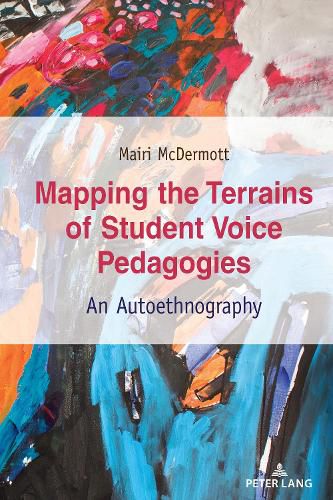Readings Newsletter
Become a Readings Member to make your shopping experience even easier.
Sign in or sign up for free!
You’re not far away from qualifying for FREE standard shipping within Australia
You’ve qualified for FREE standard shipping within Australia
The cart is loading…






This title is printed to order. This book may have been self-published. If so, we cannot guarantee the quality of the content. In the main most books will have gone through the editing process however some may not. We therefore suggest that you be aware of this before ordering this book. If in doubt check either the author or publisher’s details as we are unable to accept any returns unless they are faulty. Please contact us if you have any questions.
Mapping the Terrains of Student Voice Pedagogies is an autoethnography of McDermott’s experiences with student voice reforms. Ultimately, the author is concerned with better understanding the possibilities for student voice as a transformative teaching and learning practice within the context of neoliberal education. The discussion is anchored in two past student voice projects in which McDermott was involved, one as a researcher and one as a facilitator. As method, the author revisits these experiences through memory and various artifacts to unpack embodied voices of difference. More specifically, McDermott is concerned with how teachers take up student voice in their pedagogies, how teachers come to understand themselves and their students in terms of student voice, and how social differences contour student voice pedagogies. The author queries: How do experiences with student voice inform teacher <– –> student relationships? And, how are student voice practices shaped, organized, and inscribed through social difference? Grounding this inquiry is post-structural feminist anti-racism as an interwoven discursive orientation and politics for troubling and transforming schooling and education. Analyses address how McDermott’s presence as an individual and as a member of socio-historical groups in the student voice initiatives affected the projects’ dynamics. The findings amplify the necessity of time and space for educators to critically reflect on their practices when implementing reforms, time and space that were provided by engaging autoethnography. The book contributes important strategic processes towards realizing the necessary goals of critical reflexive practices in teaching and learning, addressing the question of ‘how’ one might do critical reflection through autoethnography.
$9.00 standard shipping within Australia
FREE standard shipping within Australia for orders over $100.00
Express & International shipping calculated at checkout
This title is printed to order. This book may have been self-published. If so, we cannot guarantee the quality of the content. In the main most books will have gone through the editing process however some may not. We therefore suggest that you be aware of this before ordering this book. If in doubt check either the author or publisher’s details as we are unable to accept any returns unless they are faulty. Please contact us if you have any questions.
Mapping the Terrains of Student Voice Pedagogies is an autoethnography of McDermott’s experiences with student voice reforms. Ultimately, the author is concerned with better understanding the possibilities for student voice as a transformative teaching and learning practice within the context of neoliberal education. The discussion is anchored in two past student voice projects in which McDermott was involved, one as a researcher and one as a facilitator. As method, the author revisits these experiences through memory and various artifacts to unpack embodied voices of difference. More specifically, McDermott is concerned with how teachers take up student voice in their pedagogies, how teachers come to understand themselves and their students in terms of student voice, and how social differences contour student voice pedagogies. The author queries: How do experiences with student voice inform teacher <– –> student relationships? And, how are student voice practices shaped, organized, and inscribed through social difference? Grounding this inquiry is post-structural feminist anti-racism as an interwoven discursive orientation and politics for troubling and transforming schooling and education. Analyses address how McDermott’s presence as an individual and as a member of socio-historical groups in the student voice initiatives affected the projects’ dynamics. The findings amplify the necessity of time and space for educators to critically reflect on their practices when implementing reforms, time and space that were provided by engaging autoethnography. The book contributes important strategic processes towards realizing the necessary goals of critical reflexive practices in teaching and learning, addressing the question of ‘how’ one might do critical reflection through autoethnography.